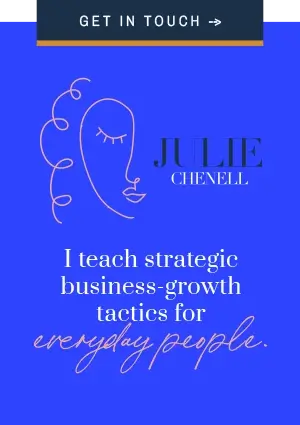Yesterday I asked all my followers if they’d be interested in a post about the mental gymnastics I had to do to make the commitment to purchase something completely unnecessary that costs the equivalent of a year’s salary for the average American.
Please understand that this post is NOT about spending money you don’t have on something you can’t afford. It’s about spending the money you DO have, on something you perceive as a luxury. I need to write out all these disclaimers because I don’t want anyone to take my words out of context. We currently (as a family) carry no debt outside of our one mortgage. Our monthly budget is adequately covered by our salary. We also have enough savings to live comfortably for a minimum of six months should shit hit the fan.
Even with all that, the mental games I had to play when this decision came about, proved just how much work I still had to do in pushing my brain to accept the laws of abundance and value as it relates to money.
What Scarcity Does To The Brain (I theorize)
By no means is this a scientific finding, but I’ve noticed that scarcity really messes people up. It triggers a survival mechanism that makes even intelligent humans operate on a much more primal level, which isn’t helpful when you’re actually trying to create something in the world. If you think about life activities on a timeline, all the stuff to the left of zero is defensive. Protective. Avoidant. Everything to the right of zero is offensive. Progressive. Creative. Stated more simply we’re either moving away from pain in a situation or towards pleasure.
Scarcity keeps us on the left side of the timeline. Resources are limited so we must protect them. Sort them. Boundary them off for the worst case scenario. And the funny part about scarcity is that even when there is TANGIBLE evidence that the situation is abundant, we cannot get ourselves unstuck from this mindset.
I’m going to jump into an analogy with food to prove my point.
For the average American, food is so ridiculously abundant it’s silly. If you run out of food at home, a store is a few minutes away. If the store is closed, there’s a 24 hr. convenience mart or fast food joint open nearby. The threat of starvation is like .00000000000000001%.
Let’s take two teenagers. Both of them are 18 years old. They both LOVE Pringles potato chips.
In one household, the kid has a mother that also loves these chips. Which means, there’s a tall red can of crunchy deliciousness in the house all the time. Good or bad, don’t judge – there just is.
In the other household, the kid has a mother that thinks Pringles potato chips are the devil. They are NEVER in the house.
Both teens go to a party at a friends house down the street. At the party, there’s a bowl of Pringles potato chips on the table. Not only that, but there are like 10 more cans lined up on the kitchen counter to refill the bowl.
The first teen grabs a few and then heads over to the pool to hang out.
The other teen hovers around the table shoving Pringles in her mouth as fast as she can, avoiding all other activities until she’s so stuffed with Pringles, she can’t move.
The reality is that there are pallets of Pringles all over the United States. There will never be a lack of Pringles. Not really. And yet, the scarcity mindset in one has created a behavior completely different, even though they both live in a world of Pringle abundance (and let’s be honest, a can of Pringles is like a $1.00 at a gas station).
The same goes with money. We all think that ONCE we have money, our scarcity mindset will go away. THIS IS A LIE. The presence of money (or pringles) won’t just magically reset your brain. I came face to face with this reality about a year ago when I realized my anxiety around money and security hadn’t gone away, even though my bank account showed more money than I ever thought I would need to feel secure.
So if we can feel scarce when there’s abundance, is it possible we can feel abundant even when things are scarce?
I think the answer is yes (though that’s the topic for another post).
What Happened When I Had The Opportunity To Join A Super Secret Club
A few months ago, I learned about a secret club that was only available to people who #1, had enough money to afford it, and #2, knew someone inside the club.
Now, I need to preface this all by saying this particular club is connected to one of my lifelong favorite activities… going to Disney World.
Anyone who knows me, knows that I LOVE Disney. It’s borderline addictive. I’ve been more than 25+ times, I know all the things, etc. So when I found out that there was a club for VIP Disney goers, I was obviously intrigued.
The more I learned about it, the more excited I got. It was like Walt Disney had stolen my brain in my sleep, wrote down all my secret Disney desires, and then made a club that matched them perfectly. I immediately set into motion the things I had to do to see if I could get an invitation to apply. This meant flying down to Disney for an interview in an undisclosed location on short notice.
I made the whole thing happen (of course), all the while fighting back the rising anxiety that I shouldn’t be entertaining such madness because no matter how I sliced the pie, there was NO FINANCIAL sense or logic involved.
You know how when you make a big purchase, you can rationalize it with logic?
(oh I’ll buy that dress and re-use it a ton and get my money’s worth)
Nuh-uh. I couldn’t make this financial decision make financial sense…at all.
And here’s the kicker – that’s when I realized that logic had been my PRIMARY defense against scarcity. It was the only way I knew to fight it.
I would use logic to help me clear the scarcity hurdle and move into abundance. But now here I was, neck deep in an interview process with a club that I spent my life unknowingly wanting, and I couldn’t use the one tool I needed to say yes.
After the interview, it took a MONTH for them to get back to me and say whether or not I’d been accepted. I’m actually grateful for that, because it took me that long to do the work in my head to be able to say yes.
Abundance & Value Based Thinking
So I wish I could button this up in a neat little list – I’m going to try – but it’s not as logical as one might think. Here are three things that I did.
#1 Hang out with abundant people.
It was so funny because after a while, I could literally predict the answer based on their financial landscape. If I asked people who didn’t have a ton of extra cash, the answer was always prefaced with a look of incredulousness, followed by a shaking of the head. But, if I asked people who were doing well financially, it was a toss up (interesting huh?). Some of them still thought it was nuts. Others however, would get SUPER excited and immediately say, “OMG YES! Do it!!!!” The difference was simply mindset. Those who were excited had done the work to live on the right side of the timeline. If you’re trying to practice abundance, I recommend you spend time with people who are already in that headspace. ANOTHER DISCLAIMER – Do not take that as to suggest that you shouldn’t hang out with others who might not be in the best financial situation. This is classism. If you barricade yourself off from those people, you’ll lose touch and empathy real fast. Just know your audience when you’re asking for specific financial advice is all.
#2 I created my personal financial value system.
For the bulk of my life, my financial value system was based squarely on savings, price shopping to the bottom, scarcity, and logic. And I don’t judge myself or ANYONE who has that mindset. It’s incredibly difficult to have any other mindset when money isn’t flowing. So please, NO JUDGEMENT at all! My point is simply that your personal financial value system won’t just automatically change once you get more money. You will have to ACTIVELY and consciously create something new if you want to enjoy the abundance of having money to create experiences and value in the world.
As I stared down this decision, I thought about the values I wanted to uphold when making a large financial decision…
• Is this purchase a high joy/low joy purchase? (credit to Brie Sodano for this) – Some purchases are just made because of a lack of planning and really don’t bring any joy to your life. Brie uses the example of getting a pizza because you’re tired and didn’t plan dinner is a low joy purchase, vs. having a pizza night with friends and ordering pizza for an evening of drinks and a movie (high joy).
• Is this purchase going to create an experience that will be something I remember for a long time to come?
• Is this purchase going to create experiences for others as well as myself?
• Is this purchase something that is trendy, or “shiny” for this moment, but hasn’t been a long time love or desire?
• Is this purchase going to alter my lifestyle, my friendship circles, my knowledge, or my view of the world in some meaningful and positive way?
• Is this purchase going to buy back the most limited resource in the world…my time?
• Is this purchase something I could easily afford if it was 5x the price?
When I can check off all the boxes, even if it doesn’t make logical sense, I know it’s a purchase I can be excited about making. Some of might have seen my cruise highlights when I went into Gucci and bought my first designer purse. That purchase did not check ALL these off, but it was also significantly less expensive than club membership. As a point of reference, the higher the price goes, the more I need all these boxes to be checked.
#3 Watch your patterns and tendencies.
This is an interesting exercise because it helps you see what your default mode is. How much of your money is going towards immediate gratification vs. longterm gratification? There should be a balance, and abundance money mindset encourages both. Are you making investments that grow over time? These types of investments (business, real estate, etc.) are not immediate gratification purchases but they produce more abundance over time. Immediate gratification investments are typically seen as “bad” to a scarce mindset, but there is value in creating experiences in the present moment. Why?
Because it changes you as a person. It alters your thought flow, your ideas, your relationships, etc. And anyone who’s seen It’s a Wonderful Life knows that everything in this world ties back to the people you meet.
The Decision To Say Yes
After all this wrangling in my head, and recognizing that the things holding me back were mindsets that no longer serve me, I said yes. It was uncomfortable at first. Just for a moment. My brain tried to pull me back into rationalizing all the things I could do with that money instead. But then I put down the need for everything to be logical, and embraced the abundance mindset that there is more than enough to enjoy life and be an adult and save for the future.
Once I leaned into that thinking, I started to see (and more importantly) feel all the creative ways this purchase would affect and bring value to my family, and to the people I love. I am now in the honored position of being the Santa Claus of Disney World. I get to create experiences for myself, my husband, my children, my relatives, my friends, and my clients. The ideas are flowing so fast and furiously, and I honestly didn’t see them until I stepped into the decision and committed to it.
I have never been more excited to spend money on something that’s only purpose, is to bring joy.









0 Comments